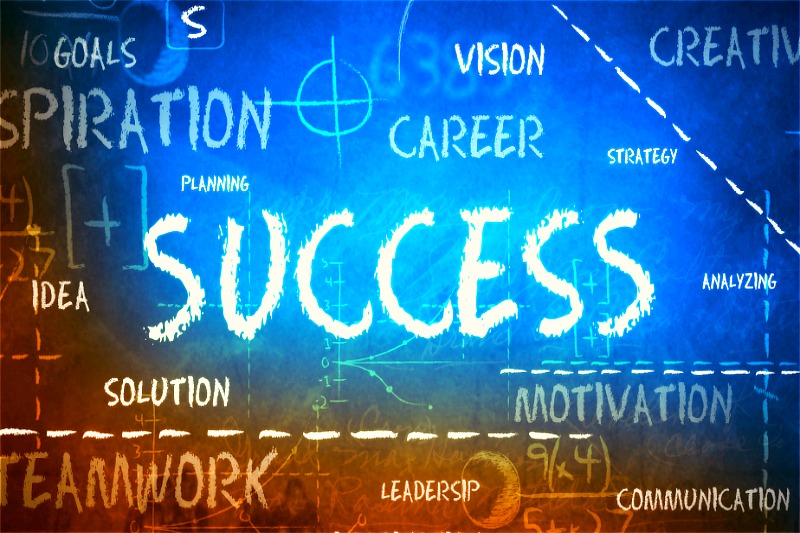12 Little-Known Life Coaching Skills

by Michael Feeley
I CHOSE COACHING as my career after doing miles of research and talking with many wonderful and generous people in the coaching profession.
It started like this — One day, after 20 years as a recruiter in New York City, I was suddenly jobless…in shock, panicking, falling apart, all knotted up and screaming inside — NOW WHAT AM I GOING TO DO!
I tried something new, and hired a Coach to settle down and find direction because I knew I couldn’t do it by myself. After lots of questions and answers, she gave me the assignment to get on the internet and find out as much as I could about the profession of Coaching.
So I did, and if you know anything about me, I’m thorough. Here’s what I discovered.
-
-
- It was a perfect transition, becoming a Certified Coach, blending my acting, business and recruiting experience.
- I loved working with people. Helping them find their dream jobs and be happy.
- I wanted to work for myself. It was time to put my energies into my own business and bank account.
-
When I began my training to become a Professional Coach I selected iPEC – Institute for Professional Excellence in Coaching.
The program was highly organized and challenging, two elements I thrive on.
I was told I would learn techniques and skills enabling me to become an expert in the coaching process — gaining the ability to coach anyone in any situation.
The program was phenomenal! Beyond what I expected.
Did I learn how to coach? Oh yes…and a whole lot more.
1. Hold to the client’s agenda
Coaching is not just training, it’s a way to live your life. The foundation principles in coaching, the concepts and tools were exciting, practical and really provocative. They made sense to me and I was able to apply many of them right away. What I was learning was impacting and changing me.
One skill is this — a professional coach never judges.
Who the client is and what they want is their agenda. Their business. Not mine.
Coaches assist you on your journey or quest to get what you want and to be who you are. It’s always your choices that we focus on. We don’t decide what is best for a client.
If you see a client’s choice as good or bad, right or wrong you’re in the midst of judgment. Coaches must learn to self manage and check that they are being completely non-judgmental.
Having an open mind is critical in learning to coach.
2. Detached involvement is powerful
*Detaching* has purpose, because even while you’re intensely involved and empathetic with your clients life and questions, you remain totally open, objective and non-judgmental.
Empathy is critical. It allows you to connect emotionally. It’s not sympathy, where you judge what a person is feeling and also feel sorry for them. Instead you feel with them.
Detaching is one of the great and challenging tools a coach can learn because it helps prevent judgment from the coach and also burnout, by not allowing you to be too emotionally connected to a client’s experience. You feel with the client but you don’t step into their box.
Coaching is scientific. The exact, careful terms, definitions and tools are some of the reasons I love and respect the profession of coaching.
3. Learn to listen
You train how to really listen to what another human being is saying, yearning for and what their values are. Even in the pauses there is meaning.
When you listen, you pay attention to someone besides yourself. Coaching is not just about hearing words.
It reminded me of my training as an actor. Learning to be deeply interested in the words and feelings of my fellow actors, and engaging all my senses. Acting is listening and reacting.
In real life, we listen all the time – consciously and unconsciously. It’s automatic. Many take it for granted.
Listening is at the center of all the transformations that take place in coaching. That’s where the questions come from and then the answers from the client.
Listening takes practice and you must be present.
4. Three levels of listening
1. *Subjective* everyday listening, where you relate what is being said only to yourself.
2. *Objective* listening is deeper and completely focused on the other person.
3. *Intuitive listening* is the deepest, where you get to the heart of another person; using all your senses and intuitive abilities to know and help a client find the answers.
Listening is a simple act and when you trust your intuition, you hear how things are said — the tone, silence and energy levels.
Intuitive listening is the most valuable and powerful form of listening because it allows a trained coach to absolutely connect with the client.
5. Coaching can be useful to anyone and any topic
In classes, it seemed we worked with every life situation there is. Coaching couples, individuals, groups, anger, joy, coaching your inner critic, building confidence, questions of age, family, children, grief, breaking down blocks, work, religion, love, sex, money, business and the unknown.
It was an exceptional learning experience for me; a high-light of my coaching education and certainly my life to observe live coaching scenarios with master coaches.
The purpose? Not just practice, but to have all the coaches in training see the important obligation we have to never judge another human being. Never to see their choices as good/bad, right/wrong…but rather to be objective, not biased, unprejudiced or opinionated about how someone else lives.
It’s a critical matter how you see what is different from yourself.
How do you see different lifestyles, cultures, skin color, beliefs, preferences, customs and choices?
Some of the greatest pain in the world is in the answer to this question.
I have enormous love and gratitude for the work involved in coaching because I saw how deeply a coach hopes to be useful to another person. How they struggle beautifully with asking questions that will connect and free a client, enabling them to be all they want to be.
6. Learn how to accept people
A lot of my life was based on judging other people, being superior and finding fault.
I judged how someone looked, talked, dressed, the house they lived in. It’s so easy to tear people down; taking quick potshots at their character just so you can feel better about yourself by making less. It becomes a way of life; a preference for disdain, and… you do pay a price for it. My scorn made me cold to the feelings other people. Aloof and distracted. My disrespect, mockery, gossip and sneering made me quite mean.
I went after changing this because I saw how harsh and unkind I was. It wasn’t who I wanted to be.
Consciously I worked to be different and to make better choices. While it has changed a lot in me, I still too easily get upset with people because they don’t go along with my ideal of how they should act. I check in on myself; teaching myself to see that other people are trying to live life just as I am trying to live life — we’re all seeking happiness and doing the best job we can.
I hope to see people with accuracy and kindness. Not to judge and have contempt. It’s a daily intention for me.
I know I don’t have to agree with their choices or be close to them but I do owe them respect; the honest seeing of who they are. That’s what I owe any person.
This is what I mean when I say — studying to be a coach is not just training it’s a way of life.
Here is an iPEC coaching foundation principle which expresses this very well:
– Our level of true awareness is directly related to our lack of judging.
An effective coach does not use his or her own personal value system as the standard to decide what is best for a client. We are each on our own journey. Living in the physical world means living in duality – light/dark, hot/cold, happy/sad, etc. One side of duality judges things as positive and the other side as negative. In order to be non-judgmental, we have to take a quantum leap past duality – away from ego – to a place where we are able to see other people for who they really are – beautiful and powerful beings experiencing the physical world, perfectly.
7. Gremlin talk
When Tim Miller* approached me for coaching, he was 45 years old. Skilled and successful as a CPA, but out of work for several months. He wanted a new career but didn’t know what he wanted to do.
He hired me for four, ½ hour sessions – a Career and Life Coaching Program I offer to jumpstart your career and shift you into the direction you want.
Often people come to coaching feeling stalled. They don’t know how to get started. It’s like driving a car. When you know what you want you get into the car, turn on the ignition and drive to a specific destination. Instead, some people try driving by pushing the car from behind and usually it’s up a steep hill. It doesn’t have to be that difficult when you have the tools and knowledge to discover your goal or direction.
Tim was talented, smart, creative, funny, open for change, and under tremendous financial pressure. He let it all out in our initial session, also describing himself as, ‘…a financial failure, never amounting to much, lazy, an under achiever, and fearful.’
Immediately we talked about his ‘gremlin’ – his inner voice that tells him – ‘Tim, you’ll always be a failure.’
He got it right away.
Coaching energy blocks is one of the important tools coaches use to release and free up a client. It helps you see where you’re stuck, what holds you back, limits your potential; undermining confidence and progress.
*Gremlin talk* as I like to call it, comes up quick in coaching. Recognizing it, giving your gremlin a name and form, is essential to taking its power away. You begin to learn how to shift energy from low self-esteem to higher awareness, seeing the truth and facts about yourself and your abilities, strengths and gifts.
Here’s how Tim defined his ‘demon’.
Fagan is his name…the character in Oliver Twist…Fagan is a fake, not what he seems and calculatingly evil. Fagan failed to support young Oliver when he had a chance at real happiness. He sabotaged him…I’ve already had a few words with Fagan today.
Sabotage is an excellent word to describe the purpose of a gremlin.
8. Two different forms of energy
Tim was seeing two things working in him. One force was his gremlin — catabolic, negative, destructive and self-defeating.
He also saw something greater – anabolic, constructive, positive energy. This is where he is his true self – and by true I mean, unlimited, confident, positive, happy, hard working and successful.
He was learning awareness. Which is the same as being conscious.
When you see that you are able to make conscious choices about your life, with knowledge, creativity, intuition, imagination, passion, you lessen your fears and free yourself. You move from the low energy of being a victim, ‘poor me’ — to higher, more powerful levels of energy such as responsibility, forgiveness, concern, peace and acceptance.
Tim was changing; learning how he is responsible for the quality and direction of his own life. He was stepping into the driver’s seat.
9. Challenge yourself
In our second session he told me he’d spent seven days soul searching the question I first asked him –
What do you want to do?
He said he found his answer. He didn’t want to work for other companies or people. Tim wanted to open his own business, creating training videos for professional massage therapists.
He had done hours of research and described exactly what he would do.
It was thrilling to hear his confidence and high energy, creative plans, commitment and joy. All of his past experience with photography, massage therapy, sales and business acumen fit in perfectly.
This was the complete opposite of failure mode.
Coaching creates surprising new drives when you challenge yourself and find your answer.
10. Take action
Coaches don’t give advice. We don’t tell people what to do. We ask people to take action.
Tim did just that. He put together a two page, detailed business plan: Executive Summary – Business Description – The Market & Competition – The Produce & Service – Management & Personnel – Investment.
The work was good!
Coaching was helping Tim not only expand his awareness but opening him up to new possibilities. The things he dreamed about were tangible and reachable. He was connecting to his potential. Shifting out of negativity into his positive passion for the things he loved and excelled at — photography, organization, service, writing, building relationships, creating and planning.
We went even deeper as to his purpose. Here are some of the questions he was asked to think about and we discussed:
-
-
- What is your purpose in starting this company?
- What do you hope to achieve?
- How will your life values be present in your work?
- What is your mission? Meaning – how will your work help people and improve the world?
- Who is your audience?
- What are their questions and struggles?
- What solutions do you offer them?
-
Tim had some concern that the purpose of my questions were to steer him away from his new business?
MF: Why do you think I’m bringing these questions up?
TM: To look at all angles. To have me be clear and help me achieve what I want.
MF: Yes. Exactly. When you set up your photography business, what was you purpose…your goals?
TM: To make money and to be professional.
MF: How big is integrity and professionalism in your life and work?
TM: Really Big!
MF: How successful were you, in your previous work, for these reasons?
TM: I was very successful.
MF: So here you are building a new business, you have two or three other successful business experiences…What stops you from doing the same thing here?
TM: Nothing.
MF: If you’re 100% clear on your purpose, what does it do for you?
TM: I have focus, energy, direction. Purpose makes me strong and happy.
11. Dreams are real plans and goals for success
By our fourth and final coaching session Timothy had named his company, produced his first product and made some money.
Success.
MF: Great work! How do you feel?
TM: Well it’s not a lot of money.
MF: In four weeks you built a company and made some cash. It’s a great start. Sure there’s more to do, but why not celebrate your success instead of complaining? What’s running you now — success or failure?
TM: It’s my gremlin. He’s trying to shoot me down, making less of my work and my success.
Tim’s deep, genuine desire to succeed was the truth. It was running him, not the negative, untrue — ‘You’re a failure Tim and you’ll never amount to anything. No matter what happens.’
Tim was in control. He had direction and purpose. He got what he wanted. He was in the driver’s seat. Fully engaged — no longer standing still and being uncertain. He made new choices. He had specific goals and he was flying on high, achievable, energy fuel.
He did a tremendous amount of work in four short weeks and it’s work he’s proud of.
Tim is in a positive, good place and he’s still working to meet other goals:
-
-
- Creating additional income to maintain his new business by finding a temporary part time job.
- Learning as much as he can about his place in the industry, which includes building relationships and getting mentors with similar, successful businesses in his niche.
- Not letting old assumptions halt, limit or derail his dreams.
-
He’s using skills that work so well for him — writing copy, interviewing, promoting his business with high standards by stating his purpose right up front to the market place.
He’s learning new things about publishing, print, film, editing and how to balance his time so he’s not exhausted building his business.
He told me — ‘I’m good! I’m not quitting. I have a vision and I’m optimistic.’
The most important thing Tim learned is this – he’s a success.
The failure model was a fake for him. A front he used to fall back on when he wanted to be lazy and feel bad about himself. His vision of failure was painful but oh so comfortable. He used it to lock himself down snug.
But, when he saw new opportunities and the truth about himself he broke out because it was his true nature. It was his destiny to be successful.
No one is born to fail. No one should live in failure. Hopefully you learn from your failures, challenges and falls, and your drive to continue, to get up and win by doing what you love and were born for, that’s your deepest desire and life’s purpose.
Tim was searching for a new direction and he discovered it through Life and Career Coaching. Opening his own business is what he wanted and he had the wisdom, courage and tenacity to do the necessary hard work to get there.
Tim Miller is a huge success.
12. Keep learning and stretching yourself
Coaching is incredibly valuable, life increasing knowledge. It promotes vision and purpose, builds happiness and success and enables you to meet your dreams and potential.
Coaching is always useful, surprising, emotional, exciting and utterly gratifying work. The coaching tools you learn enable you to always keep learning and changing…to improve, stretch, gain new vision and promote your purpose in life.
I learned so much about myself in coaching school and from every client I work with.
– How to be properly detached and vitally present
– Coaching the 4 big energy blocks
– How not to judge and listen deeply to another’s purpose and their wishes
– Accountability
– Trusting your gut instinct
– Validating a client’s values and seeing
– Acknowledging their work, thoughts, struggles and successes
– Reframing
– Visioning…
I’m still studying, learning, growing and loving my work – assisting other people to live incredible lives and careers.
You now have an inside peek at some of what goes on in coaching and the true value of the process.
Why not try it for yourself?
Shouldn’t you get what you really want in life and for your life?
Hurry up. What are you waiting for?
Thanks – Michael
* The name of the client has been changed for his/her privacy.





